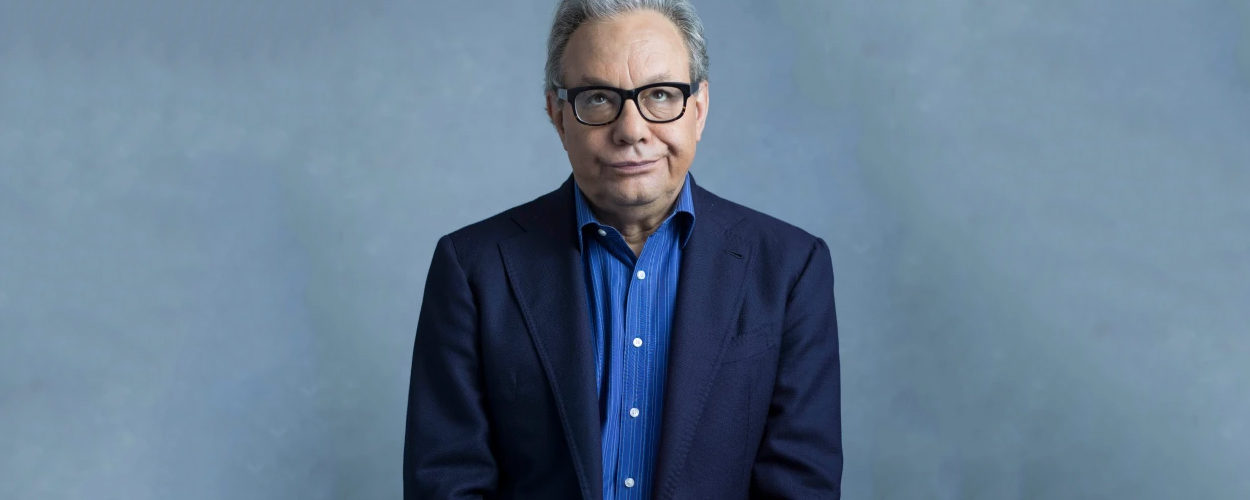This website uses cookies so that we can provide you with the best user experience possible. Cookie information is stored in your browser and performs functions such as recognising you when you return to our website and helping our team to understand which sections of the website you find most interesting and useful.
Artist News Business News Digital Legal
Lewis Black asks for his comedy to be removed from Spotify as joke copyright dispute continues
By Chris Cooke | Published on Monday 13 December 2021

The pressure continues to build on Spotify over the royalties it pays – or doesn’t – to comedians whose performances are on the streaming platform. Now comedian Lewis Black has asked that all his material be removed from the service until an ongoing royalty dispute with the wider comedy community is settled.
This all relates to what royalties need to be paid whenever content is streamed on a platform like Spotify. With music, everyone agrees that when a track streams, two sets of copyright are being exploited, so two licences are required, and two royalties should be paid. This is because there is a copyright in the recording and another distinct copyright in the accompanying song.
The music industry, of course, has long managed recording rights and song rights separately, so services like Spotify have two sets of licensing deals. They license recordings from, and pay recording royalties to, the record industry. And they license songs from, and pay song royalties to, the music publishing sector and its collecting societies.
But what about comedy? Spotify has licensing deals with the comedy labels and distributors that provide recordings of comedy performances. But – as with music – within the recording there is likely another copyright, in the words contained in the routine. Under most copyright systems that would probably be considered a ‘literary work’ in copyright terms.
The key question is this: is Spotify getting permission to exploit the literary work from the label or distributor that provides the recording? And if not, why hasn’t the streaming service secured a separate licence to cover that copyright?
The answer to that latter question is possibly because the comedy industry has not traditionally had licensing organisations specifically representing the copyright in comedy routines, as opposed to the copyright in recordings of those routines. But now, in the US at least, it does, with organisations like Spoken Giants and Word Collections having launched to represent comedians and spoken word performers in this particular copyright domain.
Last month it emerged that Spotify had removed a stack of comedy content off its service, seemingly after Spoken Giants got in touch telling the streaming firm that it hadn’t properly licensed all the rights contained in those comedy recordings.
The rights agency insists it didn’t request for any content be removed – and, indeed, it has criticised the move – but Spotify argues that, now a rights issue had been raised, it’s important to address that issue before the disputed content is streamed again.
Spotify said in a statement: “Spotify has paid significant amounts of money for the content in question, and would love to continue to do so. However, given that Spoken Giants is disputing what rights various licensors have, it’s imperative that the labels that distribute this content, Spotify and Spoken Giants come together to resolve this issue to ensure this content remains available to fans around the globe”.
Some of Black’s content was affected by the takedown, but not all of it, according to Time. However, the comedian has told the news magazine that while his fellow comics are being negatively impacted by the dispute, he’d rather not be streaming on Spotify at all.
“I in no way represent all of the comedians on Spotify, but I do believe that all of them should be paid for the writing that they have done and not just for the performance of what they wrote”, the comedian said in a statement. “It has taken a long time for comedy to be recognised as an artform. Therefore, Spotify should recognise that a joke is as powerful as a lyric of a song, which they do pay for”.
“Many comics have recently been taken off Spotify for no reason at all and it truly hurts their exposure and income”, he added. “Since I haven’t been taken off, I would like to be, as it is wrong that I am on the platform and so many aren’t. I need neither the money nor the exposure, but please put all of the comedians back on your platform and let’s sit down and find a way to pay us what we are owed for the words that make you laugh. Yes, a joke is intellectual property”.
It now remains to be seen how quickly the big joke copyright spat can be solved.





